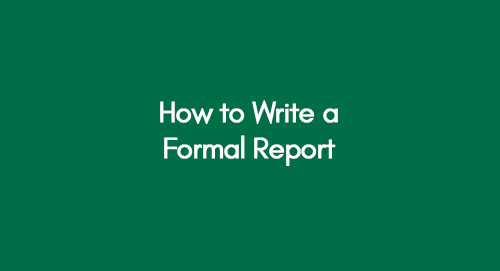
How To Write A Conclusion Paragraph: Examples and Strategies for an Effective Conclusion
October 14, 2022
How to do a Literature Review? Best Tips on Writing a Literature Review
October 18, 2022A report is an academic or literary document that provides concise information on a particular occasion, subject, or problem.
Enhance Your Knowledge of Crafting High-Quality Report Here
A good report will contain all the information that an unfamiliar person needs to understand the subject or topic.
Want to learn how to write a formal report? Keep reading this post till the end, and you will be equipped with all the tools crafting a report.
Get 3+ Free Custom Topics within 24 hours;
What is a Report?
A report is a brief, direct document produced with a specific target and purpose in mind. It generally describes and analyses a situation or problem and frequently offers suggestions for action.
Gain a Deeper Understanding of What Constitutes a Report Here
Because it is an academic piece, it must be concise and organized. Based on your supervisor's subject matter and guidelines, report writing takes various forms and formats. As we advance, we will learn how to write a formal report and what to include in a formal report.
What Information should a Report Contain?
All facts are appreciated, but reports, in particular, frequently contain the following kinds of information:
- Details of an event or circumstance.
- The after-effects of the ongoing impact of an incident or occurrence.
- Analytical or statistical data evaluation.
- Interpretations based on the report's data.
- Building predictions or suggestions depending on the report's facts.
- Relationships between the information and other reports or occurrences.
Which Sections are Included in a Report?
Formal report structure often follows the conventions of starting with an executive summary and ending with references or a bibliography.
1. Introduction
The introduction of an academic report typically includes a brief overview of the main points covered in the report. It is essential to make sure that the introduction is clear and concise so that readers can easily understand what the report will be about
2. Literature Review
The literature review is a section of the report where you will critically analyze existing research on your chosen topic. It includes a summary of the most critical findings from the literature and your own evaluation of the study.
3. Methodology
The methodology section of an academic report typically describes the methods used to collect data for the report. The methodology must be detailed and precise so that readers can understand how the data was collected and how it relates to the research question.
4. Results
The results section of an academic report presents the findings from the data collected in the methodology section. Results should be organized and clearly explained so readers can easily understand.
5. Discussion
The discussion section of an academic report is where you will interpret the results and discuss their implications. Be thoughtful and well-reasoned to convince readers of your interpretation of the data.
6. Conclusion
An academic report's conclusion summarizes the main points and provides a final assessment of the research question, problem, or event.
7. References
Referencing is a list of all the sources you consulted for your report and is included at the end of the report. The recommended referencing style for your school or department might differ, and you will need to consult your instructor or library guide. The popular referencing styles are APA, MLA, Chicago, Harvard, OSCOLA, Numeric, etc.
Structure of the Academic Report
The format of a report is determined by the kind of report it is and the assignment's requirements. While reports might have their structure, the majority employ the following general framework:
Summary
An executive summary is a stand-alone section highlighting your report's results so that readers will know what to anticipate, much like an abstract in a research paper. These are more frequently used for official reports than for academic ones.
Introduction
Your introduction introduces the main subject you will explore in the report, along with your thesis statement and any previous knowledge necessary before you get into your own results.
Body
The report's body discusses all your significant findings using headings and subheadings. Most of the report is made up of the body; in contrast to the introduction and conclusion, which are a few paragraphs long, the body can span many pages.
Conclusion
In conclusion, you should summarize all the data in your report and offer a clear interpretation or conclusion. Usually, the author inserts their judgments or assumptions here.
Types of Reports
1. Research Reports
Research reports are typically written by academics or researchers and are used to communicate the results of a study. Research reports are usually peer-reviewed, meaning other experts in the field have evaluated them before being published.
2. Laboratory Reports
Students or scientists are the ones who craft these types of reports after experimenting in a laboratory setting. Laboratory reports typically describe the purpose of the experiment, the methods used, the results obtained, and the conclusions drawn from the data.
3. Field Reports
Researchers who have conducted research in a naturalistic setting use field reports, such as in a forest or farm.
4. Technical Reports
Technical reports are written by engineers or other technical experts and are used to communicate information about a technical project or product.
5. Marketing Reports
Marketing reports are a type of business report that provides information on a company's marketing activities. Marketing reports can include market research, sales, customer, and competitor data. Marketing reports are used by managers to assess the effectiveness of marketing campaigns and to make decisions about future marketing strategies.
How to Write a Formal Report in 5 Easy Steps
Let's now discuss the mechanics of writing a report. You can go from having a concept to having a finished document by following the five report-writing procedures listed below.
1. Select a Topic
Choose the topic for your report before you begin writing. When writing commercial or scientific reports, the topic is frequently set by the nature of your research or given to you as a significant component of the project. In such a case, you can skip this step and continue.
Learn More about the Importance of Selection of Topic Here
It is one of the fundamental parts of the entire writing process if you are responsible for selecting your own topic, as is the case with many academic papers. Try to select a topic that is adequate and intrigues you.
2. Prepare an Outline
Writing an outline is advised for all types of writing, but reports benefit the most since they strongly focus on organizing. Because headings and subheadings are frequently used to define sections of reports, a thorough outline ensures that you don't overlook anything when writing.
3. Do Some Research
In scientific and business reports, the research is often your own or issued by the firm, but there is still a significant amount required to search for independent sources.
Unless you're obliged to use class materials, you're mostly on your own when conducting research for academic papers. That's one of the reasons selecting the appropriate topic is so important; if the topic you choose lacks sufficient research, you won't go very far.
Learn Tips for Conducting an Effective Research Here
The secret is to limit your search to reliable sources, such as official records, other reports, scholarly articles, case studies, books by renowned writers, etc. Use any study that has been mentioned in reports comparable to yours. A quick visit to the library may also come in handy in a rush. However, you can frequently locate a lot of material online by using search engines.
4. Craft an Engaging Thesis Statement
Create a thesis statement before moving on to comprehend the core idea of your paper effectively. The thesis statement outlines the core concept of your work. Once you've gathered enough data, you should identify some patterns and trends.
5. Writing is Rewriting
Once you've completed your rough draft, it's time to return and correct the errors you missed during the initial writing. Rereading your report is essential before making any significant corrections, such as deleting or rearranging entire words or paragraphs. You can occasionally discover that your data is inconsistent or that you misread a crucial piece of evidence.
Why Writing a Report is Important?
1. Helps to Communicate Information
One of the primary reasons why writing a report is important is that it helps to communicate information. Often, a report is the only way to share information with those who need it effectively. A well-written report can help to ensure that information is communicated clearly and concisely.
2. Assists in Decision Making
It helps to make decisions. A report can provide decision-makers with the information they need to make informed decisions. In many cases, a report can be the difference between making good and bad decisions.
3. Improves Critical Thinking and Solves Problems
Writing a report can also help to solve problems. Often, a problem cannot be effectively solved without being adequately documented. A well-written report can help to identify the root cause of a problem and develop a plan to solve it.
4. Save Time
Writing a report can also help to save time. In many cases, writing a report can be faster and more efficient than trying to communicate the same information verbally. Additionally, the report can serve as a reference point for future use, saving even more time in the long run.
5. Improves Communication Skills
Writing a report can also help to improve communication skills. The process of writing a report requires one to effectively communicate their thoughts and ideas on paper (or electronically). This process can help improve communication skills, which can benefit personal and professional settings.
6. Aids in Building Credibility
Finally, writing a report can also help to build credibility. In many cases, people will judge your work's quality based on your reports' quality. As such, writing high-quality reports can help you to build credibility and earn the respect of your peers.
Conclusion
A well-crafted report can enable you to convince your reader about your research. If you are struggling with how to write a formal report, you can consult our experts in report writing. The main focus of our experts is to enable you to become a brilliant report writer.
Get an Immediate Response
Discuss your custom requirements with our writers
Free Online Plagiarism Checker For Students
We will email you the report within 24 hours.
Upload your file for free plagiarism





























